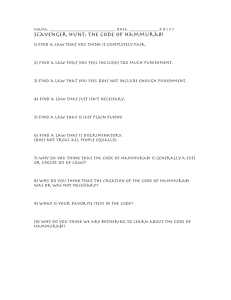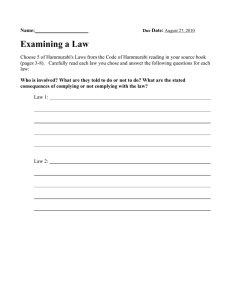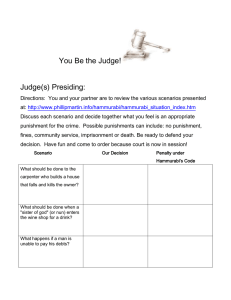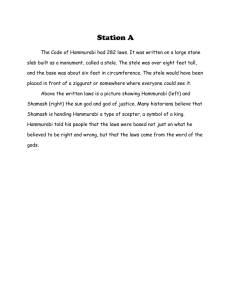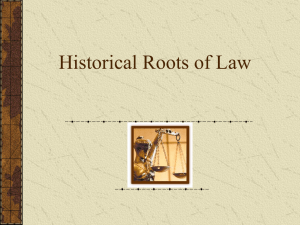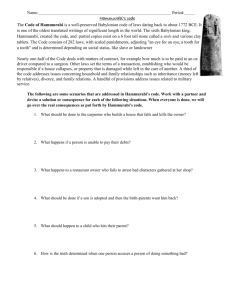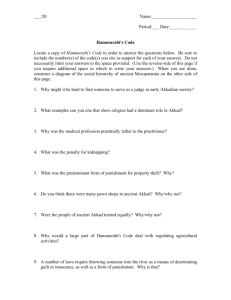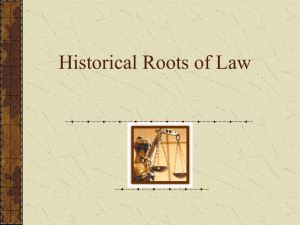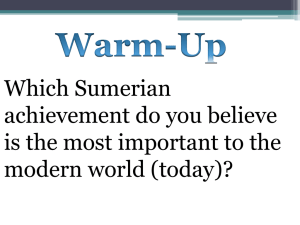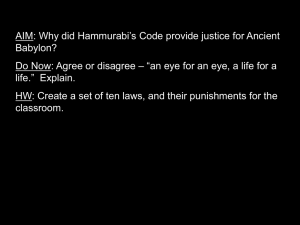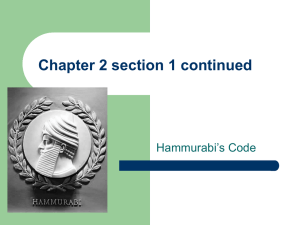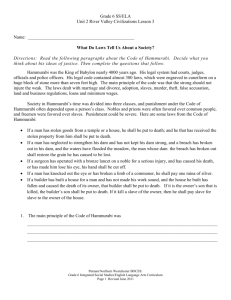Code of Hammurabi Worksheet: Laws & Justice
advertisement
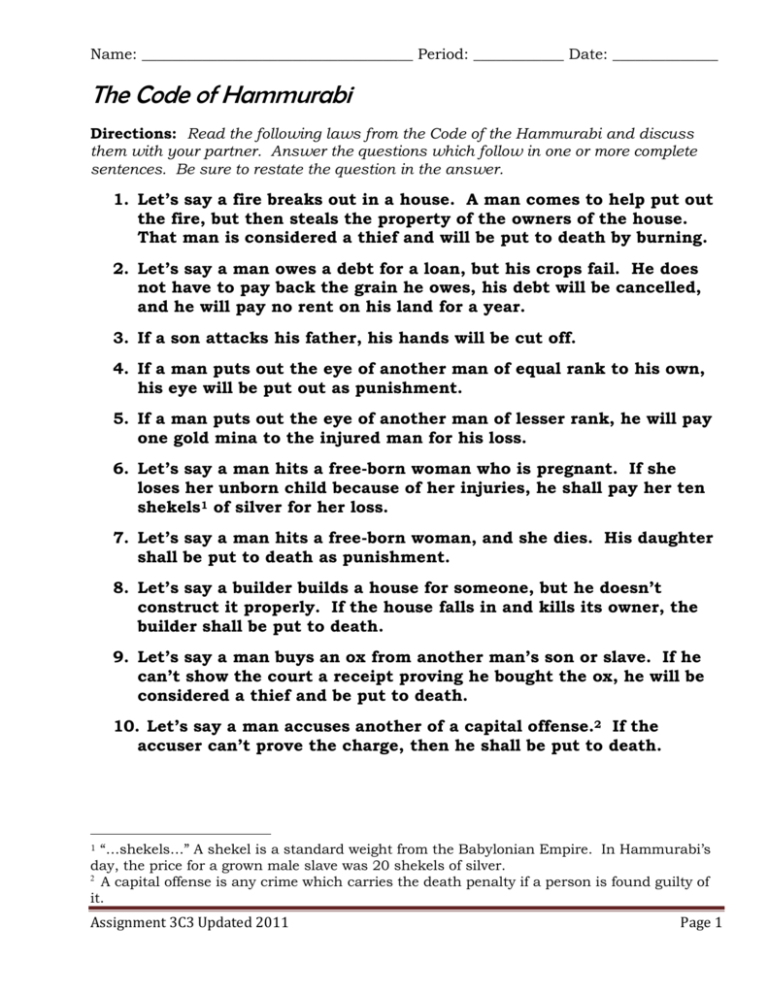
Name: ____________________________________ Period: ____________ Date: ______________ The Code of Hammurabi Directions: Read the following laws from the Code of the Hammurabi and discuss them with your partner. Answer the questions which follow in one or more complete sentences. Be sure to restate the question in the answer. 1. Let’s say a fire breaks out in a house. A man comes to help put out the fire, but then steals the property of the owners of the house. That man is considered a thief and will be put to death by burning. 2. Let’s say a man owes a debt for a loan, but his crops fail. He does not have to pay back the grain he owes, his debt will be cancelled, and he will pay no rent on his land for a year. 3. If a son attacks his father, his hands will be cut off. 4. If a man puts out the eye of another man of equal rank to his own, his eye will be put out as punishment. 5. If a man puts out the eye of another man of lesser rank, he will pay one gold mina to the injured man for his loss. 6. Let’s say a man hits a free-born woman who is pregnant. If she loses her unborn child because of her injuries, he shall pay her ten shekels1 of silver for her loss. 7. Let’s say a man hits a free-born woman, and she dies. His daughter shall be put to death as punishment. 8. Let’s say a builder builds a house for someone, but he doesn’t construct it properly. If the house falls in and kills its owner, the builder shall be put to death. 9. Let’s say a man buys an ox from another man’s son or slave. If he can’t show the court a receipt proving he bought the ox, he will be considered a thief and be put to death. 10. Let’s say a man accuses another of a capital offense.2 If the accuser can’t prove the charge, then he shall be put to death. “…shekels…” A shekel is a standard weight from the Babylonian Empire. In Hammurabi’s day, the price for a grown male slave was 20 shekels of silver. 2 A capital offense is any crime which carries the death penalty if a person is found guilty of it. 1 Assignment 3C3 Updated 2011 Page 1 Questions: A. Do all of these laws cover crime? What other sorts of human activity do these laws cover? B. Many scholars would say that the basis for punishment in Hammurabi’s criminal code is that of equal retribution. Looking at the punishments for these crimes, what would you say “equal retribution” is? C. Did the Code of Hammurabi protect everyone in society equally? Why do you say this? D. Would you want to live under a system of laws like this? Why or why not? Assignment 3C3 Updated 2011 Page 2
